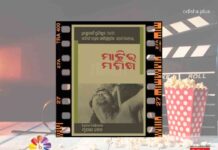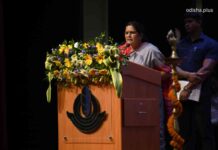Sambeet Dash

In the middle of the current Election imbroglio in the electorally important state of Maharashtra passed away the person who was synonymous with the conduct of Elections in India the 1990s. The man, T N Seshan who carved his niche as the martinet but controversial Chief Election Commissioner, passed away today at the age of 87.
He was and still is one of the rarest of the rare Indian Bureaucrats I admire. T N Seshan single-handedly took the entire establishment by horn while he was in the system, a very rare thing for a government official to do. Because barring a few exceptions, the Indian Bureaucracy is famous for being self-serving, champion at maintaining the status quo where the process, not the end result is important.

Yet T N Seshan was the odd man out in a system where the Babus (a not so flattering term used to denote the all-powerful Indian bureaucrats often in a derogatory way) are known for their obsequiousness and servility – towing the lines of political masters. An IAS officer from South India he crashed into the limelight in North, in the national capital Delhi when he was made the Chief Election Commissioner. Self-describing himself as an Umpire whose role is to see the election is conducted fair and square, he firmly clamped down on electoral violators fast and furious.
As a first step, he came up with the idea of Voter Identity Cards. It was anathema to many politicians, upsetting the likes of Laloo Yadav in Bihar and Communists in Bengal who mastered the art of booth capturing and didn’t want to lose their upper hand.

The maverick T N Seshan proclaimed “No voter Id Card, no Election” prompting many states in the mid-1990s to hastily issue id cards. Sensing him getting too powerful for his shoes, the government tried to clip his wings by appointing a couple of more Election Commissioners. But the extrovert Brahmin from the state of Tamil Nadu retorted back – “Let the Government appointment 100 Election Commissioners. But I am the one and only one CHIEF Election Commissioner” – reminding all about his position in the highly hierarchical structure of Indian bureaucracy.
He yet vindicated that the Babus from their fraternity need not have to lick the boots of their political masters in order to survive. After retirement in the late 1990s, he visited many places across India giving speeches and attracting thousands who thronged to watch him speak. In one of those lectures, he famously said – “Not a square inch of India from Kashmir to Kanyakumari is free from corruption”.

I saw him once when he came to Odisha and gave a speech in the middle of BJP College Old Science block. The cramped venue was jam-packed, so much so that you throw a handful of mustard seeds inside the audience it can’t reach the ground (Transliteration of a common Odia proverb SORISHA PAKEI BAKU JAGA NATHILA). People saw him as an agent of change inside the miasma of dirty Indian politics.
He wasn’t far from the truth. Two decades down the road corruption has got from bad to worse. Those who used to take hundreds now demand thousands, thousands demand lakhs, lakhs have graduated to crores, crores to multi crores keeping with the inflation. In China, they say Corruption is rampant, in India the Corruption is epidemic.
My thousand Salute to the braveheart who unlike his tribe went against the tide to challenge the authorities and tried his best to be a harbinger of change. I hope he inspires the new generation for a better India.
(Sambeet Dash is an Odia technocrat living in Georgia ,US)

























